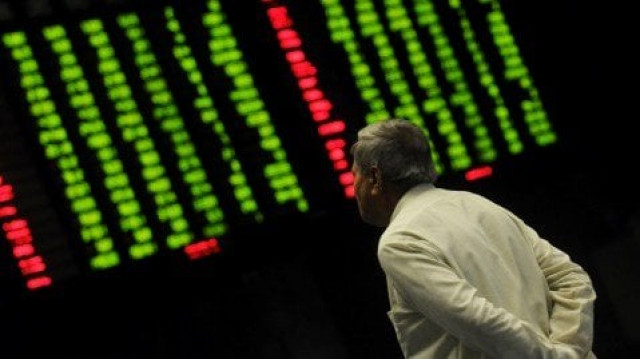Financial globalisation and stock market
Whenever market bubbles burst, they create havoc in real economy, affect long-term growth

Financial globalisation and growth of the stock market go hand in hand as the stock market is a potent symbol of financial capital.
The dominance of global financial capital has added complexity in the process of economic development and caused this task difficult for governments of developing countries and Pakistan is not an exception in this regard.
The stock market is touching dizzying heights as the index of Pakistan Stock Exchange (PSX) has already crossed the barrier of 60,000. The index has grown by 50% in a short span of time, though it remained range bound for a couple of years.
The market remained depressed when there was news of default circulating in the country and the International Monetary Fund (IMF) was reluctant to extend the much-needed credit. During that period, the rupee kept on devaluing vis-a-vis the dollar and there was speculative attack on the currency.
The country also faced inflation and further devaluation of the rupee, which accelerated the increase in prices of commodities and services in an unpredictable way.
Then came the standby arrangement (SBA) with the IMF in June 2023, which dampened the news of default and brought relative stability in the currency market.
A relative calm in the currency market along with continuation of the IMF programme provided an opportunity to the international financial capitalists to pour money into the stock market. Foreign corporates and local institutional investors have become quite active since then and the PSX index is touching new heights by disregarding fundamentals and even the high policy rate.
Foreign financial capitalists invest in stock markets of developing countries. Share prices in developing countries are not correlated with share prices of the developed ones. In addition, stock prices in developing countries are 10 to 15 times volatile than those of the developed ones. Mature stock markets of developed countries have reduced volatility.
Hence, financial gurus try to get maximum benefit out of this volatility in developing countries and get quick gains for their clients.
The euphoria in the stock market depends on the confidence of investors. Confident investors keep on pouring money into the stock market, which keep on touching new heights in a couple of years. This will also increase the real economy to some extent.
Read Stocks rise past 62k, reach new record
The lesson of history is that the confidence turns out to be short lived. Any negative news jolts the confidence of investors as foreign portfolio investors take an exit and markets go into the tailspin.
The sharp exit of investors has created difficulties for governments of developing countries in Latin America and East Asia at various intervals.
Foreign financial capital moves quickly across borders under financial globalisation. Financial capitalists abhor the idea of capital control. The sudden exit of foreign capital from developing countries has created financial instability when there is hardly any capital control.
The exit of financial capital also affects the currency market a great deal. Interaction of financial capital outflow and the currency market may create greater macroeconomic instability which, in turn, impacts the real economy.
For instance, the sudden pullout of foreign portfolio investors created a loss of 3-5% of the real gross domestic product (GDP) in certain cases.
In short, the growth of the stock market in developing countries is part and parcel of the process of financial globalisation where financial liberalisation has played a pivotal role.
Whenever bubbles of the stock market burst, they create havoc in the real economy and affect long-term economic growth. Hence, the government should be wary of this fact and act accordingly.
The writer has worked at SDSB, Lahore University of Management Sciences (LUMS)
Published in The Express Tribune, December 11th, 2023.
Like Business on Facebook, follow @TribuneBiz on Twitter to stay informed and join in the conversation.



















COMMENTS
Comments are moderated and generally will be posted if they are on-topic and not abusive.
For more information, please see our Comments FAQ